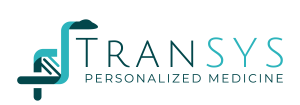The journey to personalized healthcare unites stakeholders to optimize patient outcomes. Patients gain insights through health assessments and genetic testing while researchers innovate to enhance personalized practices. Recognizing dynamic health trajectories and understanding transitions is crucial for adapting interventions. Integrated with automation, nurse-led models advance precision health, prioritizing individualized care. Automation and digital technologies enable rapid data collection and tailored interventions. The digital health landscape is shifting towards increased automation, empowering patients and optimizing healthcare delivery.
Dynamic Paths to Personalized Health: Navigating Transitions with Care
Gökhan Ertaylan VITO, Belgium
The path to personalized healthcare is a collaborative journey, uniting stakeholders with expertise and unique perspectives to optimize patient outcomes. For patients, this journey begins with access to comprehensive health assessments and genetic testing, providing invaluable insights into their individual health risks and treatment options. Meanwhile, researchers persistently seek innovation, exploring new technologies and therapies to enhance personalized healthcare practices. Acknowledging the dynamic nature of a patient’s health trajectory, it becomes imperative to discern patterns and determinants of health and disease transitions. Understanding these dynamics offers opportunities to adapt public health policies, interventions, and strategies for personalized healthcare delivery. Moreover, by integrating health and disease transition analysis with automation, digitalization, and patient care, we leverage technological advancements to enhance research methodologies, data collection, analysis, and healthcare delivery.
Nurse-Led Precision Care: Empowering Patients with Automated Excellences
Diana Trutschel Pflegewissenschaft – Nursing Science (INS) Switzerland
Nurse-led models of care are increasingly recognized for their potential to advance precision health initiatives, particularly when integrated with automation-driven approaches. Nurses’ unique blend of clinical expertise and patient-centred care is crucial in implementing precision health strategies prioritising individualized treatment and preventive measures. In nurse-led models, automation technologies can streamline various aspects of healthcare delivery, such as data collection, analysis, and patient monitoring. By leveraging automation, nurses can efficiently gather and interpret patient data, identify patterns, and tailor interventions to meet each patient’s needs. Integrating nurse-led care with automation enhances the efficiency and accuracy of precision health initiatives and empowers nurses to deliver high-quality, personalized care at scale. As healthcare continues to evolve towards a more precise and patient-centric paradigm, nurse-led models supported by automation technologies are poised to play a central role in driving transformative advancements in healthcare delivery and outcomes.
Discovering Your Health Blueprint: The Power of Personalized Networks
Federico Melograna TranSYS KU Leuven Belgium
Automating Precision Health: Revolutionizing Therapeutic Discovery and Patient Communication
Martijn Ludwig TranSYS Deloitte; Senior manager, consulting – technology
The digital health and precision medicine landscape is shifting towards increased automation, notably therapeutic target discovery and patient communication. With the aid of AI-driven algorithms, identifying therapeutic targets is undergoing a profound transformation. These algorithms swiftly parse through extensive biomedical datasets, pinpointing potential targets with unprecedented precision and efficiency compared to conventional methods. This automation expedites drug discovery and broadens the scope of target exploration, paving the way for innovative treatment strategies. Concurrently, digital health technologies are revolutionizing patient communication by automating the creation of personalized health reports. Leveraging individual genomic data, medical histories, and lifestyle factors, these reports deliver tailored insights into health risks, treatment options, and preventive measures. By fostering greater engagement and empowerment among patients, such automated reporting systems hold immense promise in optimizing healthcare delivery and enhancing patient outcomes.

